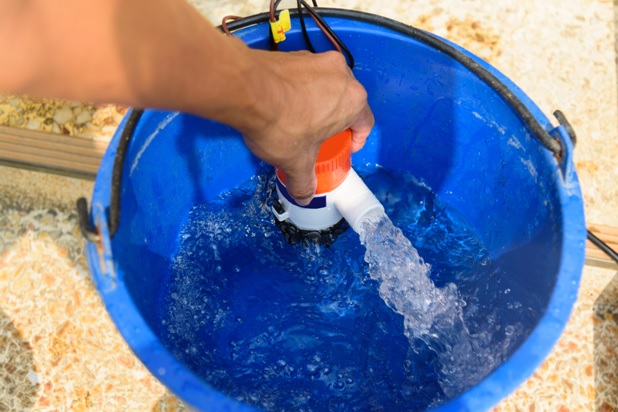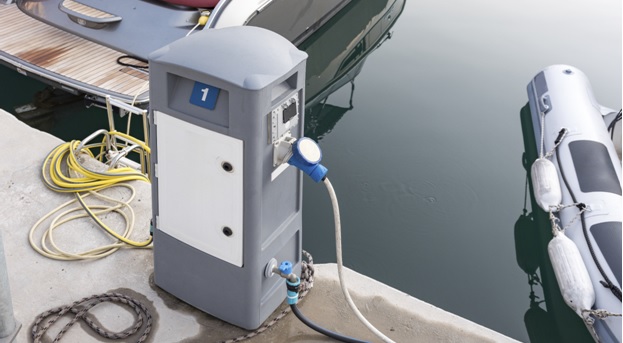Marine Battery Cables and Terminals: Controlling Corrosion
19th Jul 2023
Marine environments are harsh. No one will argue that. Weather aside, marine environments are a pea-soup cocktail of reactive chemical elements. Seawater alone wreaks havoc on most if not all metals.
Electrical systems, as you may know, are predominantly made of metal wires and terminals. To that end, corrosion is a serious concern for a boat’s electrical system.
These are some tips to help you protect your marine battery cables and terminals against it.
● Use ONLY marine-grade wire
This is far and away the most important tip for preventing corrosion and related damage to a boat’s electrical system.
Most electrical wire is made of copper. Copper conducts electricity well, but it is highly suspect to corrosion, especially in a marine environment. Exposed copper wire does not stand a chance.
Therefore, you must use only marine grade wire, as approved by the ABYC, for wire runs on boats. Marine grade wire consists of copper wire, but the strands are individually tinned to protect against corrosion.
● Use the proper-gauge wire (or even a little bigger)
Whatever the recommended wire gauge for a project is, never use a wire in a thinner gauge. Use only the appropriate gauge, or a step bigger.
The reason for this has implications with respect to corrosion but it goes beyond that. The main thing is that wire in an inadequate gauge will get too hot while carrying current. Heat accelerates chemical processes, and corrosion is a chemical process. Therefore, overheated wire will corrode more rapidly, especially at exposed connections.
Heat will accelerate corrosion, and corroded wire creates greater resistance, which makes the wire get even hotter. It’s a positive feedback loop, and not a good one.
The other thing is that inadequately sized wire, that generates too much heat, also presents a fire risk.
● Prevent chafing/Insulation wear/breakdown
Wherever a wire run exits or enters a structure or fitting, protect it with a section of conduit or wrap it with a protective cover.
Abrasion is one of the leading causes of corrosion in marine wires and cables, which in turn produces a much greater risk of fire.
The bottom line is wherever there is exposed marine wire, you must take steps to protect it against abrasion which will expose the wire.
● Protect all connections with shrink-wrap tubing/waterproof protection
At any point where you must strip wire to establish an electrical connection, the exposed wire is at a heightened risk of corrosion.
Wherever you must strip marine battery cable or wire, use a waterproof or shrink-wrap bit of tubing to protect the wire against the elements. Do not leave the wire exposed.
● Keep wire runs away from the bilge and all other areas where water pools

Wherever possible, do not allow wire runs to run through, along, or even close to the bilge (except where necessary, such as for the bilge pump) or anywhere else that there is standing water.
Over time, chemicals in water (such as acids and fuel) can eat away at a wire’s insulation. At that point, when the insulation breaks down the wire will be exposed to corrosive influences.
● Protect exposed connections/terminals with dielectric grease/a spray anti-corrosion treatment
There are sprays and other special treatments you can use to protect exposed connections and battery terminals against corrosion. One of these treatments is dielectric grease, which does not interfere with the performance of the wire and which will seal it off against corrosion. Take care also to treat your battery’s terminals, as these will be exposed and will be at greater risk of corrosion.
Other Tips to Preserve Your Marine Batteries, Cables, and Terminals
In addition to the tips covered here that will help forestall corrosion, there are some other things you can do to help preserve the lifespan of your marine battery cables and terminals.
● Disconnect the battery leads when not in use
Leaving your boat battery hooked up for prolonged periods of time when not in use will expose it to what is called parasitic draw, which occurs when all of the components of a boat’s electric system pull a little bit of power when not in use. In the short term, the effect is negligible, but if you leave the battery hooked up for weeks without using it, you might come back to a dead battery.
● Remove the battery in the winter and store it in a cool, dry location
In the winter, it’s a good idea to disconnect and remove your battery from the boat. Restore its charge, and then store it somewhere above freezing, but cool and dry, until it’s time to launch the boat again in the spring. Never leave it dead for any length of time.
● Hook it up to a maintainer when not in use for prolonged periods of time

If your boat is in the water year round and you leave it for periods of time between taking it out, it’s a good idea to hook the battery up to a maintainer. This will help prevent it from discharging fully and lying dead, and is good for both battery performance and longevity.
EWCS Wire: Quality Marine Battery Cables and Terminals
Hopefully you found these tips for preventing corrosion to your marine battery cables and terminals helpful.
If you find yourself in need of high-quality marine battery wire for making repairs or wiring new runs, please consult the previous link and get in touch with us at Sales@EWCSWire.com if you have any additional questions.

